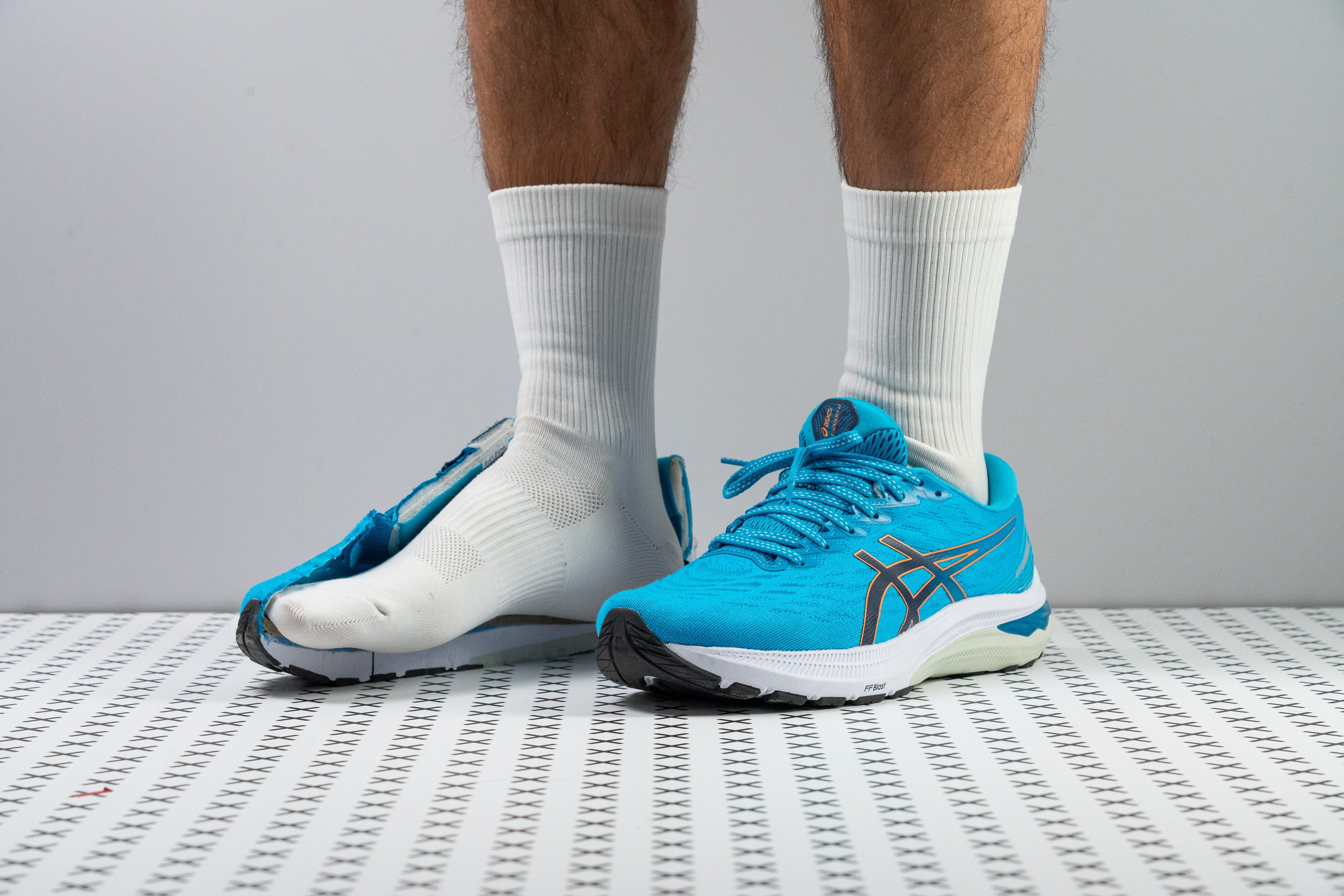Our verdict
Pros
- A gentle stability shoe
- Well-cushioned
- Comfortable in-shoe feel
- Responsive ride
- Light for its kind
- Secure lockdown
- Breathable
- Great value for money
Cons
- Narrower-than-expected toebox
- Overly padded tongue
Audience verdict
- Top 30% in running shoes
- Top 25% in stability running shoes
Comparison
The most similar running shoes compared
+ + Add a shoe | |||||
|---|---|---|---|---|---|
| Audience score | 89 Great! | 87 Great! | 82 Good! | 83 Good! | |
| Price | £145 | £110 | £140 | £160 | |
| Pace | Daily running | Daily running | Daily running | Daily running | |
| Shock absorption | - | Moderate | High | Low | |
| Energy return | - | High | Moderate | Low | |
| Traction | - | - | High | Moderate | |
| Arch support | Stability | Stability | Stability | Stability | |
| Weight lab Weight brand | 9.9 oz / 282g 9.7 oz / 275g | 10.3 oz / 293g 10.5 oz / 297g | 9.5 oz / 269g 9.4 oz / 266g | 11.6 oz / 329g 11.3 oz / 320g | |
| Drop lab Drop brand | 6.0 mm 8.0 mm | 9.8 mm 10.0 mm | 8.7 mm 8.0 mm | 7.9 mm 10.0 mm | |
| Strike pattern | Mid/forefoot | HeelMid/forefoot | HeelMid/forefoot | Mid/forefoot | |
| Size | True to size | True to size | True to size | True to size | |
| Midsole softness | Balanced | Firm | Soft | Balanced | |
| Difference in midsole softness in cold | Small | Small | Normal | Normal | |
| Toebox durability | - | Decent | Decent | Good | |
| Heel padding durability | - | Good | Good | Good | |
| Outsole durability | - | Bad | Good | Good | |
| Breathability | Moderate | Warm | Warm | Moderate | |
| Width / fit | Narrow | Medium | Medium | Narrow | |
| Toebox width | - | Wide | Narrow | Medium | |
| Stiffness | Stiff | Stiff | Moderate | Moderate | |
| Torsional rigidity | Moderate | Moderate | Stiff | Stiff | |
| Heel counter stiffness | Moderate | Moderate | Stiff | Moderate | |
| Heel lab Heel brand | 30.7 mm 35.0 mm | 32.9 mm 31.0 mm | 36.9 mm 36.5 mm | 33.2 mm 31.0 mm | |
| Forefoot lab Forefoot brand | 24.7 mm 27.0 mm | 23.1 mm 21.0 mm | 28.2 mm 28.5 mm | 25.3 mm 21.0 mm | |
| Widths available | NormalWideX-Wide | Normal | NormalWideX-Wide | Normal | |
| Orthotic friendly | ✓ | ✓ | ✓ | ✓ | |
| Season | All seasons | All seasons | All seasons | All seasons | |
| Removable insole | ✓ | ✓ | ✓ | ✓ | |
| Ranking | #201 Top 30% | #172 Top 45% | #280 Bottom 26% | #260 Bottom 32% | |
| Popularity | #346 Bottom 49% | #354 Bottom 7% | #69 Top 19% | #144 Top 38% |
Size and fit
Size
ASICS GT 2000 11 fits true to size (31 votes).
Who should buy the ASICS GT 2000 11
The ASICS GT 2000 11 is an excellent choice for:
- Those who are looking for daily running shoes that are both supportive and comfortable.
- Runners who need a daily trainer that’s both lightweight and responsive.
- Fans of the Cumulus 24 who have low arches or flat feet.
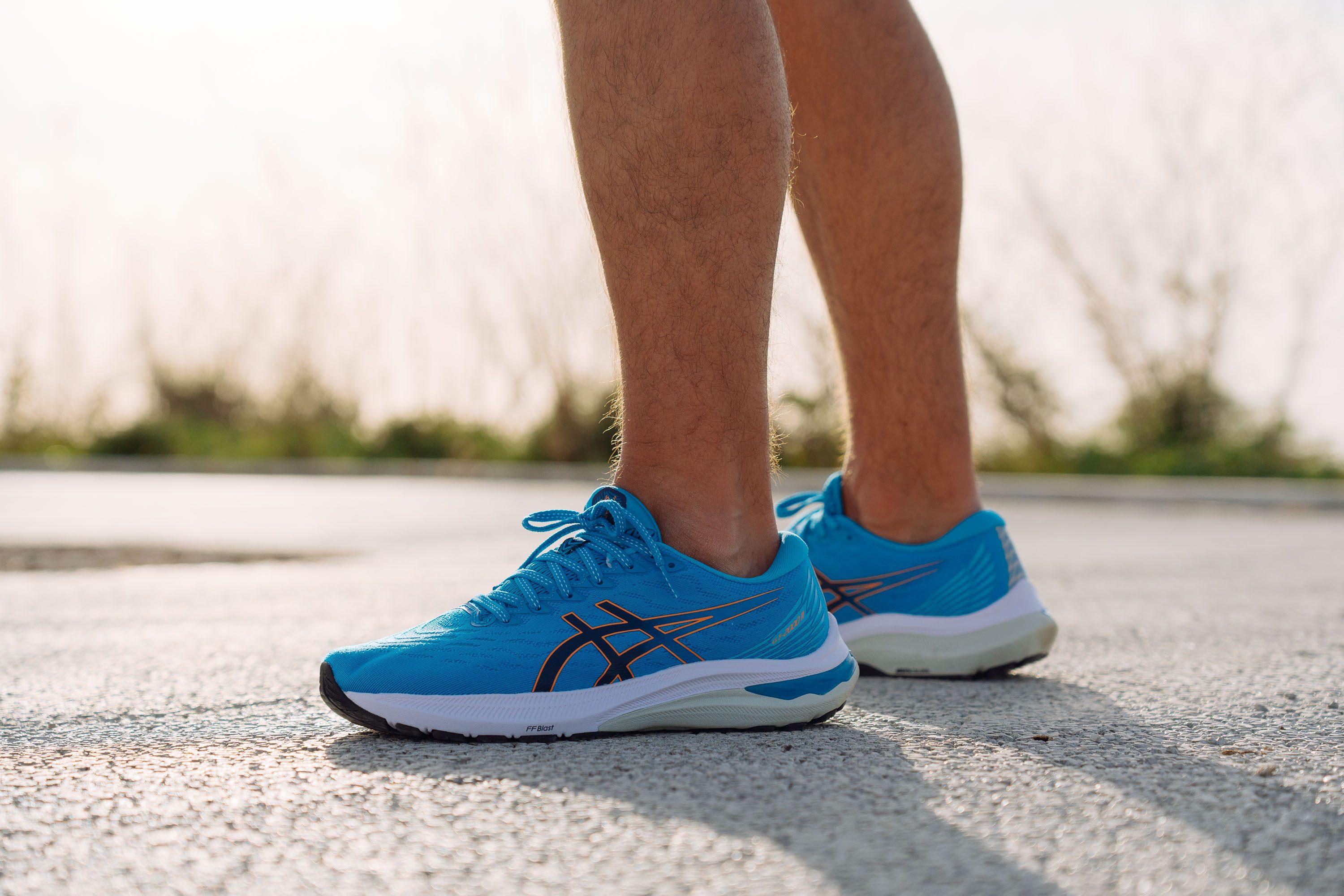
Who should NOT buy it
This might be a pass for runners with severe overpronation. We found it better to consider the ASICS Gel Kayano 30 instead - the brand's most stable shoe.
For those who need just a touch of stability, the neutral ASICS Gel Nimbus 24 is our recommended option.
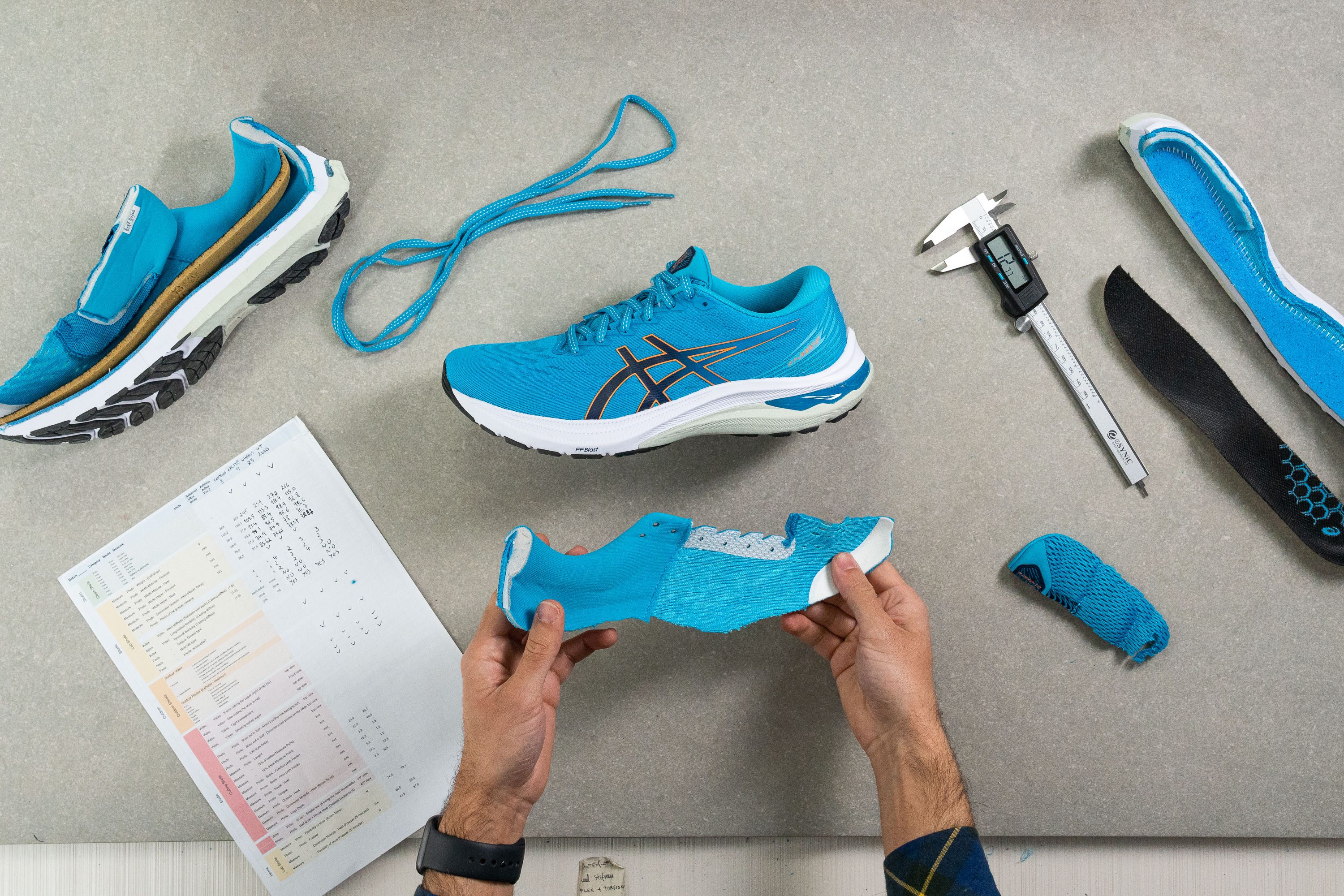
Dare to take the ASICS GT 2000 11 on any run
This ASICS trainer is the most reliable option, from easy runs to tempo runs, and backyard excursions to day-long adventures.
We loved the fact that we could just take the shoe out on a long run but then change plans and pick up the pace. The shoe also nailed stability and arch support as it held our feet and ankles in position and got us efficiently through the gait cycle.
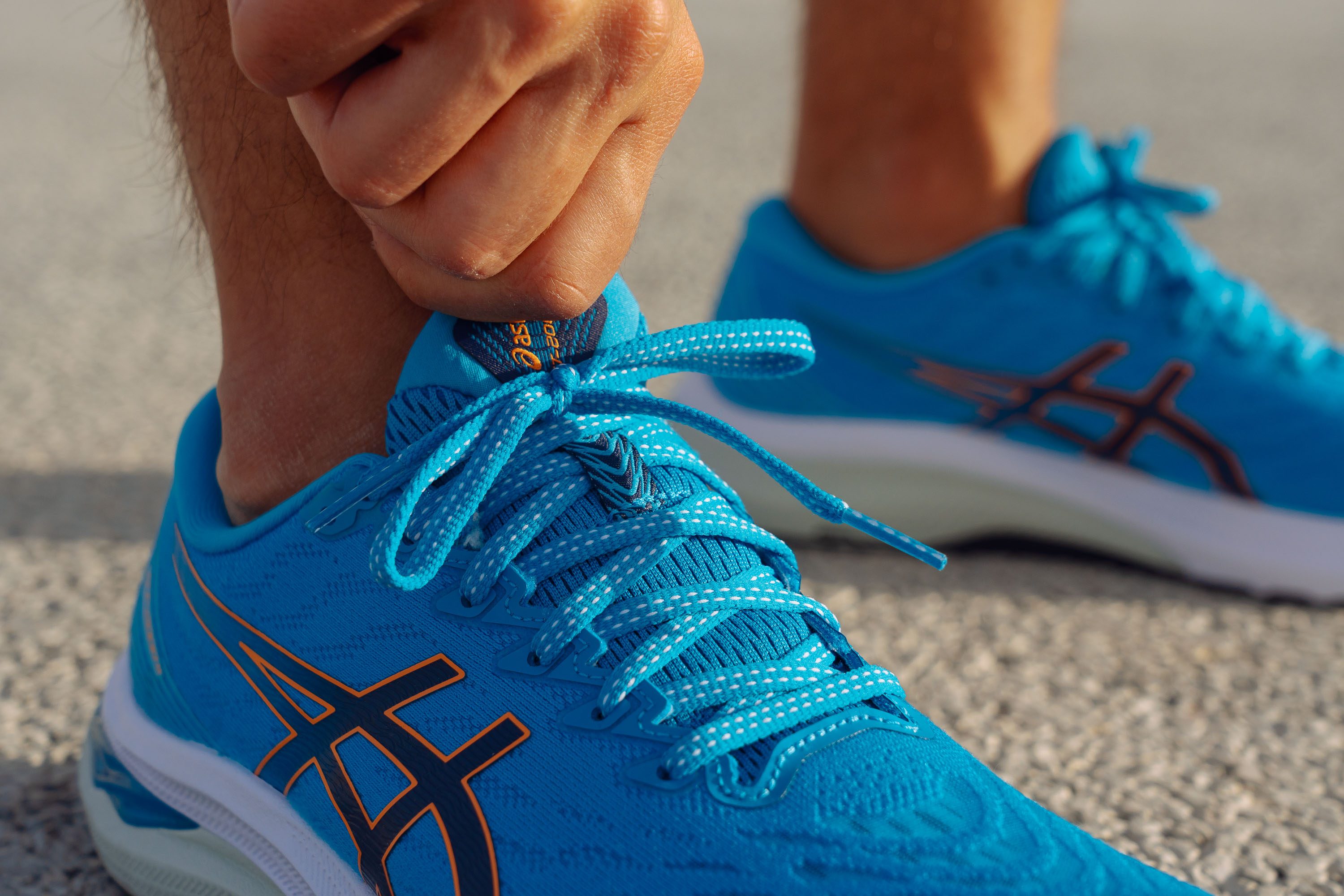
GT 2000 11 is well-ventilated for summer runs
We have found that choosing this ASICS shoe for hot summer days is not a problem. Even though it is not THE most breathable shoe, it is still effective in keeping the foot fresh.
Pumping smoke through the shoe's upper, we rated the shoe's ventilation capacity as 4 out of 5 where 5 is the most breathable.
Most of the air passes through the top of the toebox. See how large the ventilation pores are in this area.
Flat feet are nice and supported in the shoe
The overall structure of the ASICS GT 2000 11 supports flat feet and encourages a straight gait.
It does so with the help of an integrated LITETRUSS system which we found very effective yet unintrusive. It is a very gentle kind of arch support as in we didn't feel it but it was always there.
In addition to the shoo's supportive sole, it also comes with a really well-constructed upper and a moderately stiff heel counter. This GT shoe skips the famous "ASICS clutch" by making the heel counter more forgiving. We rated its heel stiffness as 3 out of 5.
The GT 2000 11 also features a tonne of padding, particularly on the tongue. Our calliper shows a whopping 12.5 mm! This is mind-blowing considering that the average is 5.6 mm.
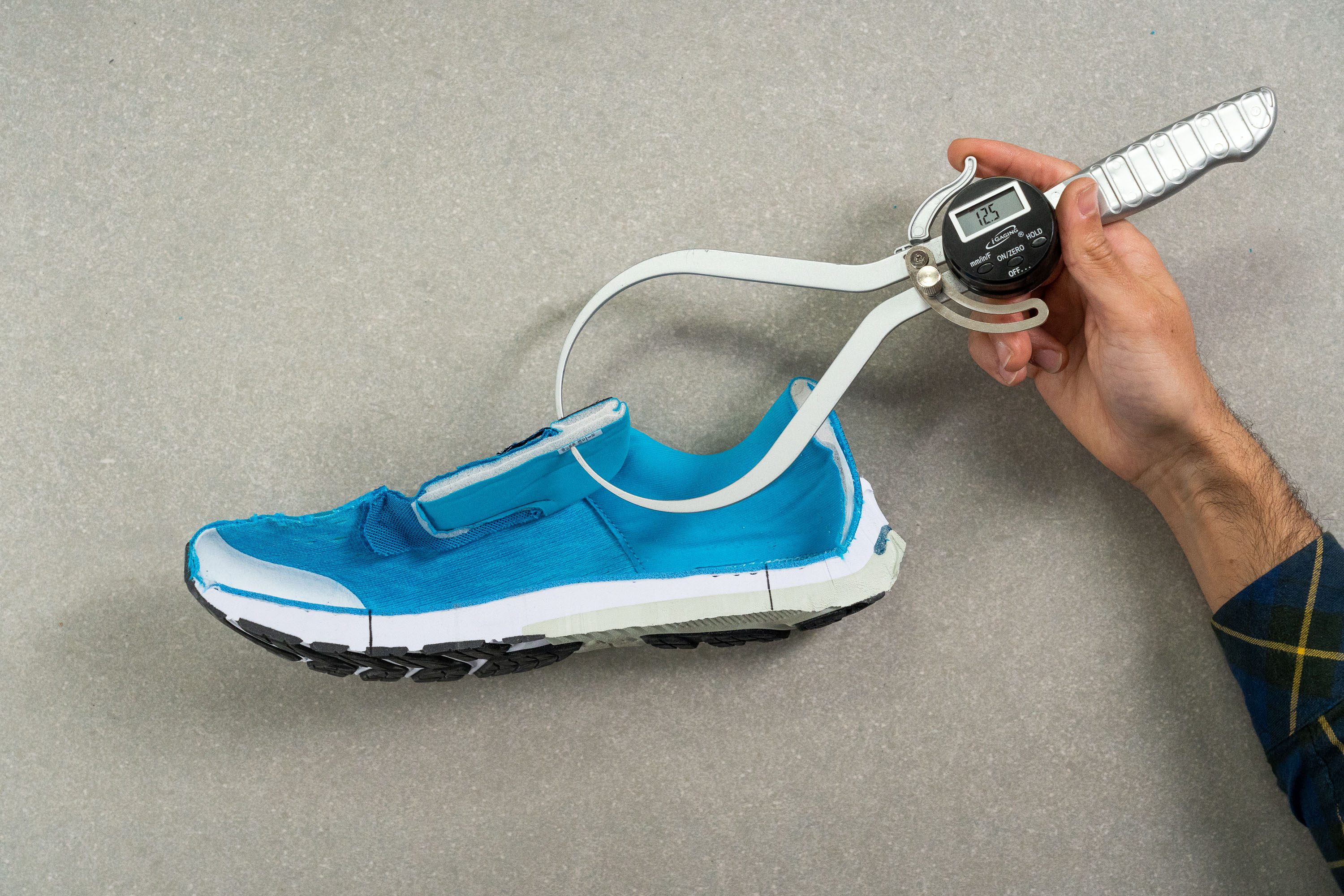
Not a stiff stability shoe
We found the GT 2000 11 to be surprisingly flexible for a stability shoe. Based on our resistance check, it is 22% more pliable than the average for road running shoes. The GT 2000 11 is also 14% more flexible than the Kayano 29.
In a manual assessment, we rated the shoe on a 1-5 scale where 5 is the stiffest. Its longitudinal flexibility got 2 out of 5 and the torsional flex got 3 out of 5.
Ample cushioning in each step
The GT 2000 11 provided us with a good amount of underfoot comfort and cushioning all throughout the run. However, we found that the stack height of the shoe was lower than stated by the brand.
In a men's shoe, it is claimed to be 35 mm in the heel and 27 mm in the forefoot, which gives us an 8-mm drop. However, based on our calliper measurements, the heel is 30.7 mm thick...
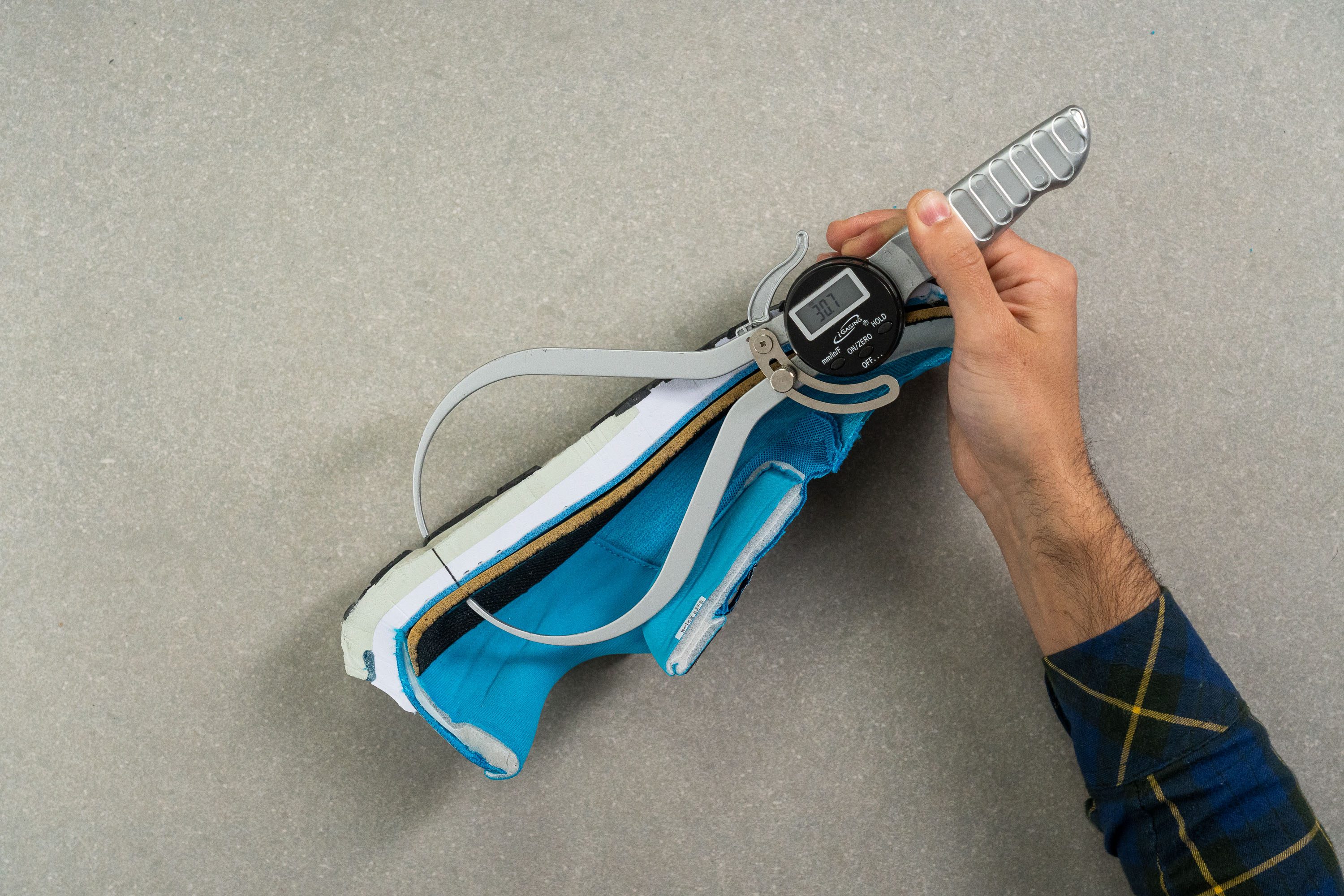
...while the forefoot is 24.7 mm thick. This returns the heel-to-toe drop of 6.0 mm.
While this is not a deal-breaker, it's a warning to runners who may be expecting a highly cushioned ride.
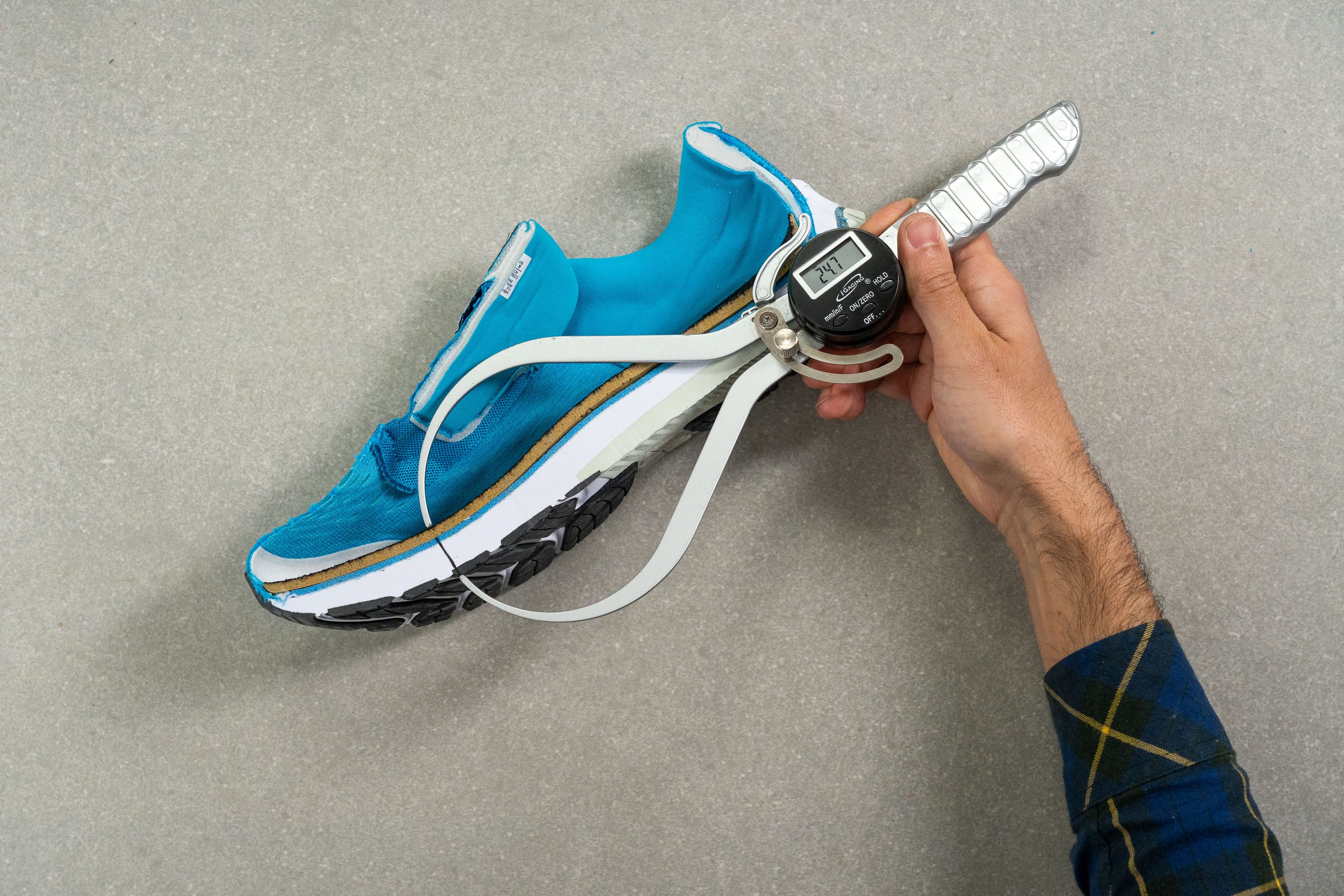
The insole is well-padded in the GT 2000. We measured it at 4.8 mm.
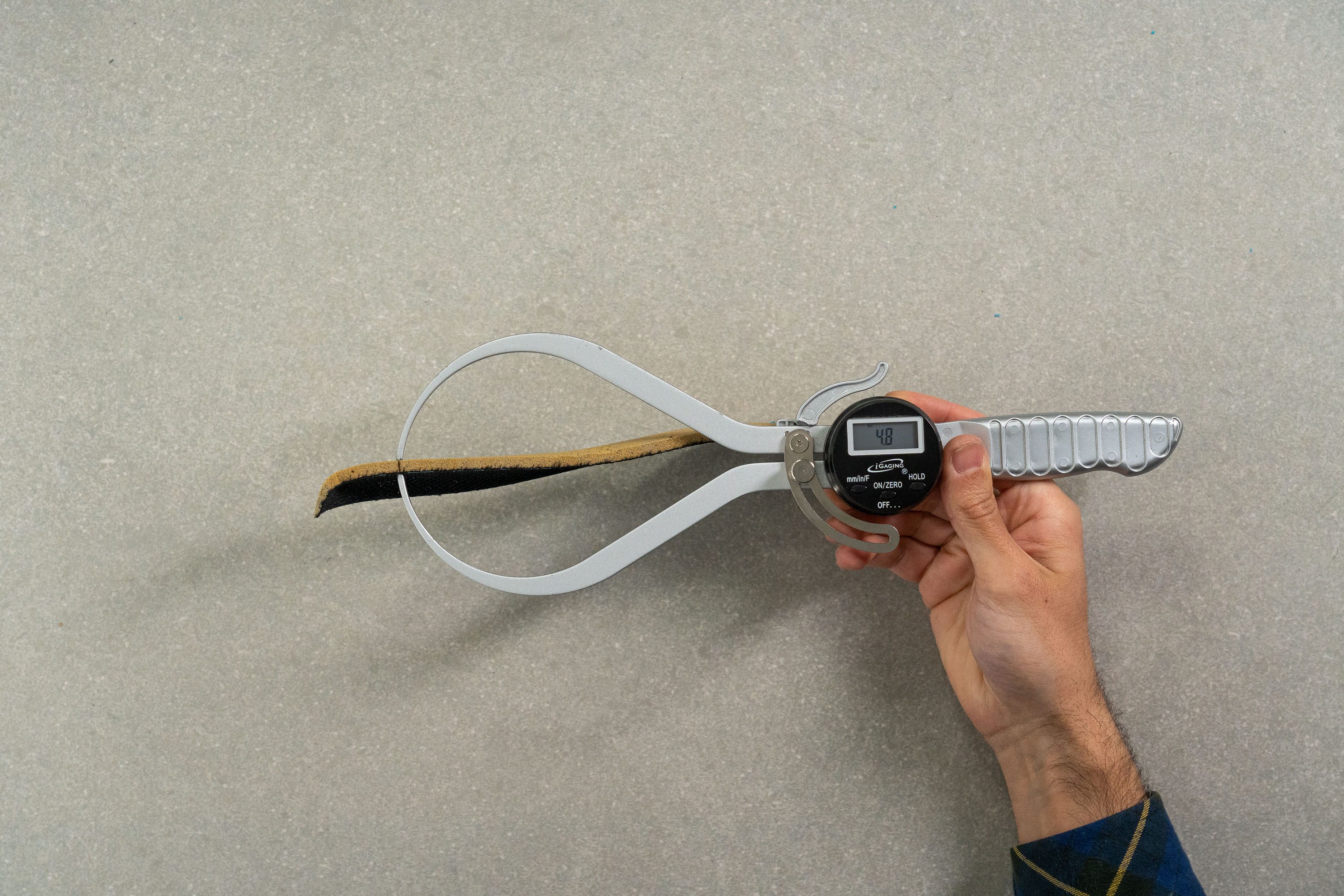
A springy and firm experience from front to back
Out on the run, the ASICS GT 2000 11 felt less like a marshmallow and more like a springboard. The ride was moderately firm which helped with stability and the toe-offs felt quite dynamic.
Having checked the shoe's midsole with a durometer, we can confirm that it has a balanced type of cushioning, neither too soft nor firm. It is 18% firmer than average though.
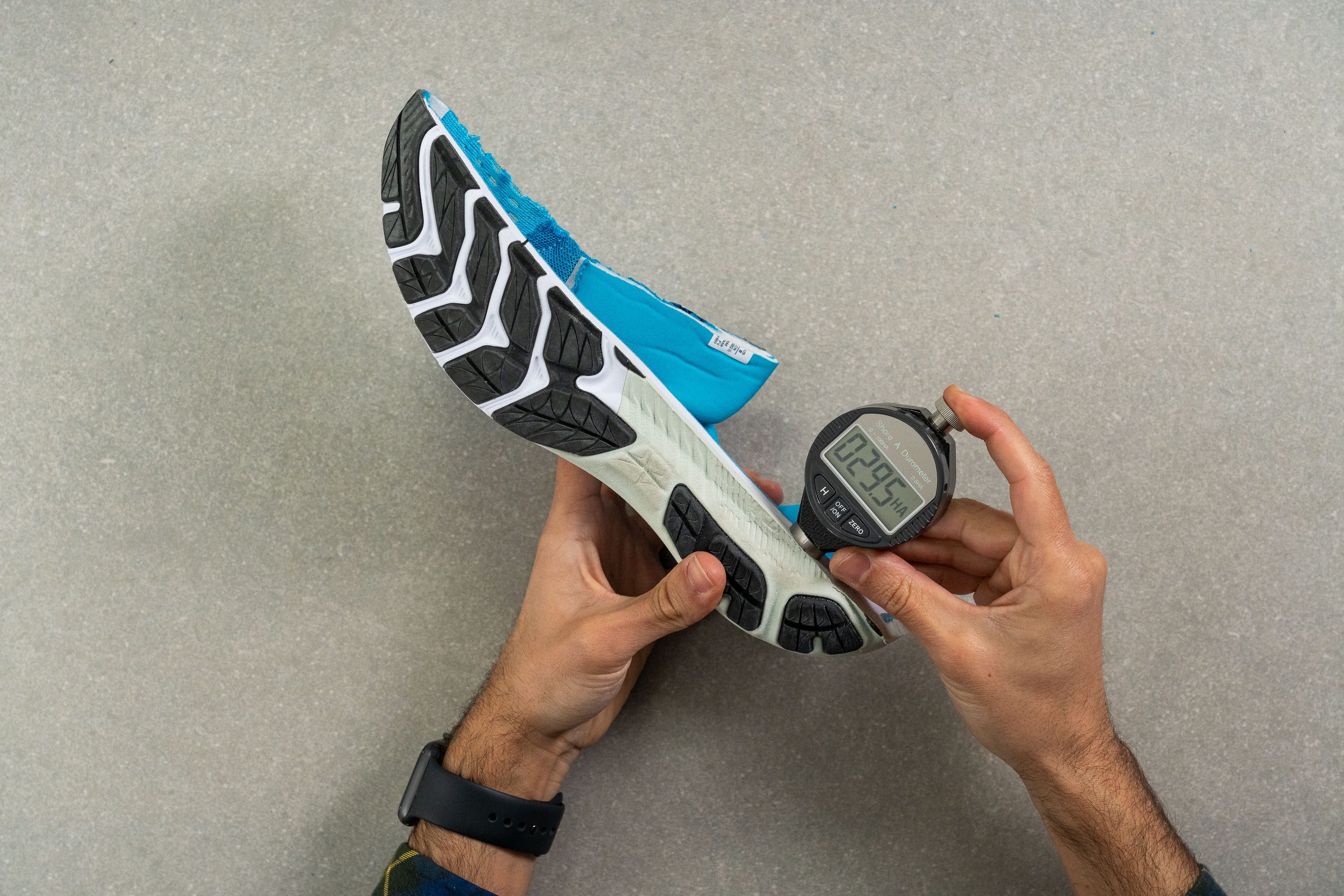
Such a balance is achieved through the dual-density midsole. The white foam is softer and the minty green one below it is made of a firmer compound.

Those running in chilly conditions need not worry about the cushioning firming up too much in this ASICS shoe. After 20 minutes in the freezer, we found that the foam got only 10% firmer.

The ASICS GT 2000 11 is a hugger
We enjoyed the overall fit of these daily runners. The shoe felt true to size and provided a snug foot-hugging experience.
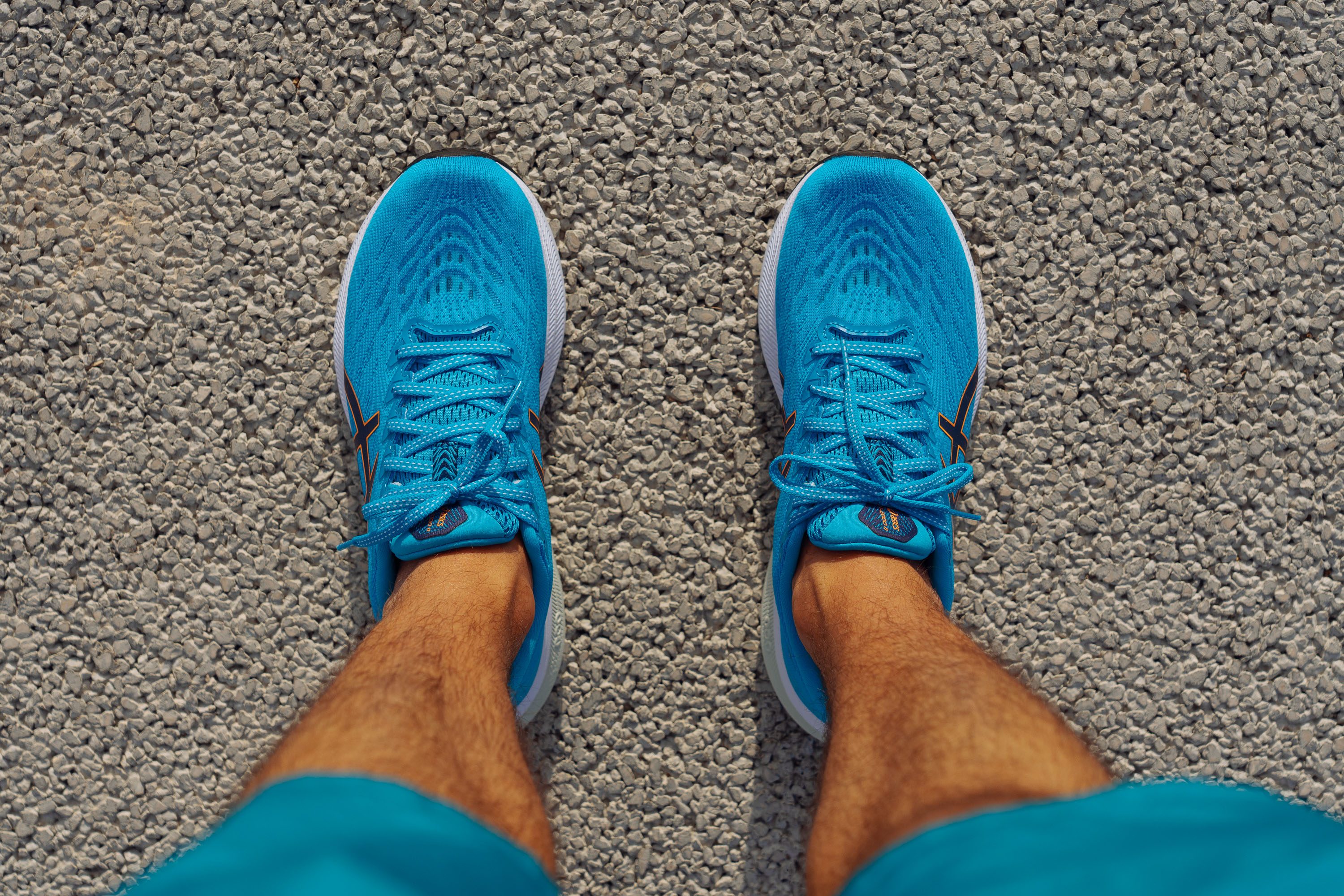
Our toebox width measurement proves that the GT 2000 11 has a slightly narrower-than-average toebox. At 95.6 mm in the widest part of the forefoot, it is 2 mm narrower than average. Thus, it can feel tight for wide feet. Luckily, this ASICS shoe is available in Wide and Extra Wide options.
For medium-sized feet though, it was never a problem. It is a close-fitting shoe but it feels quite accommodating.
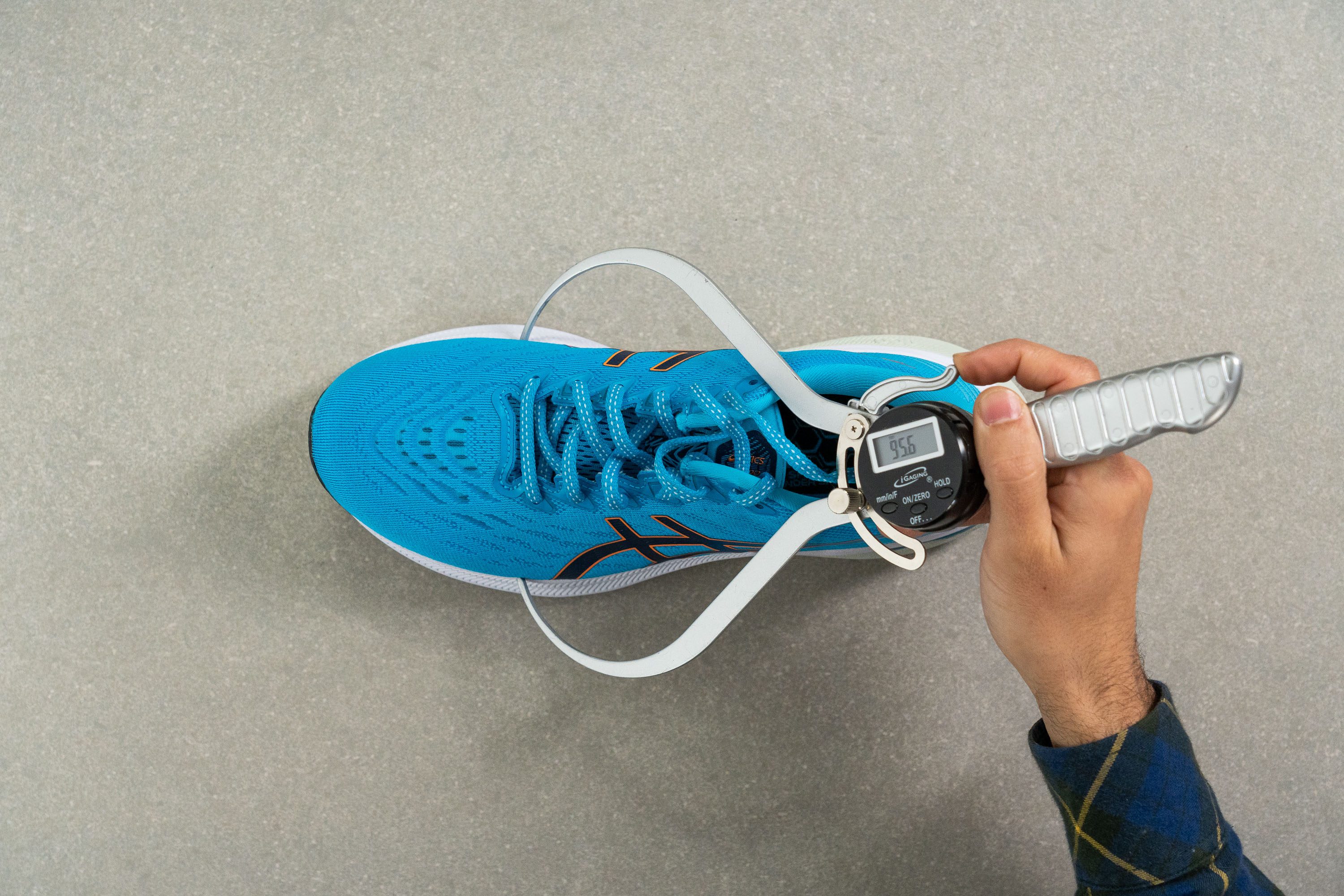
Average price for a stability shoe
The ASICS GT 2000 11 is right at the average of stability running shoes (£140) in terms of its price.
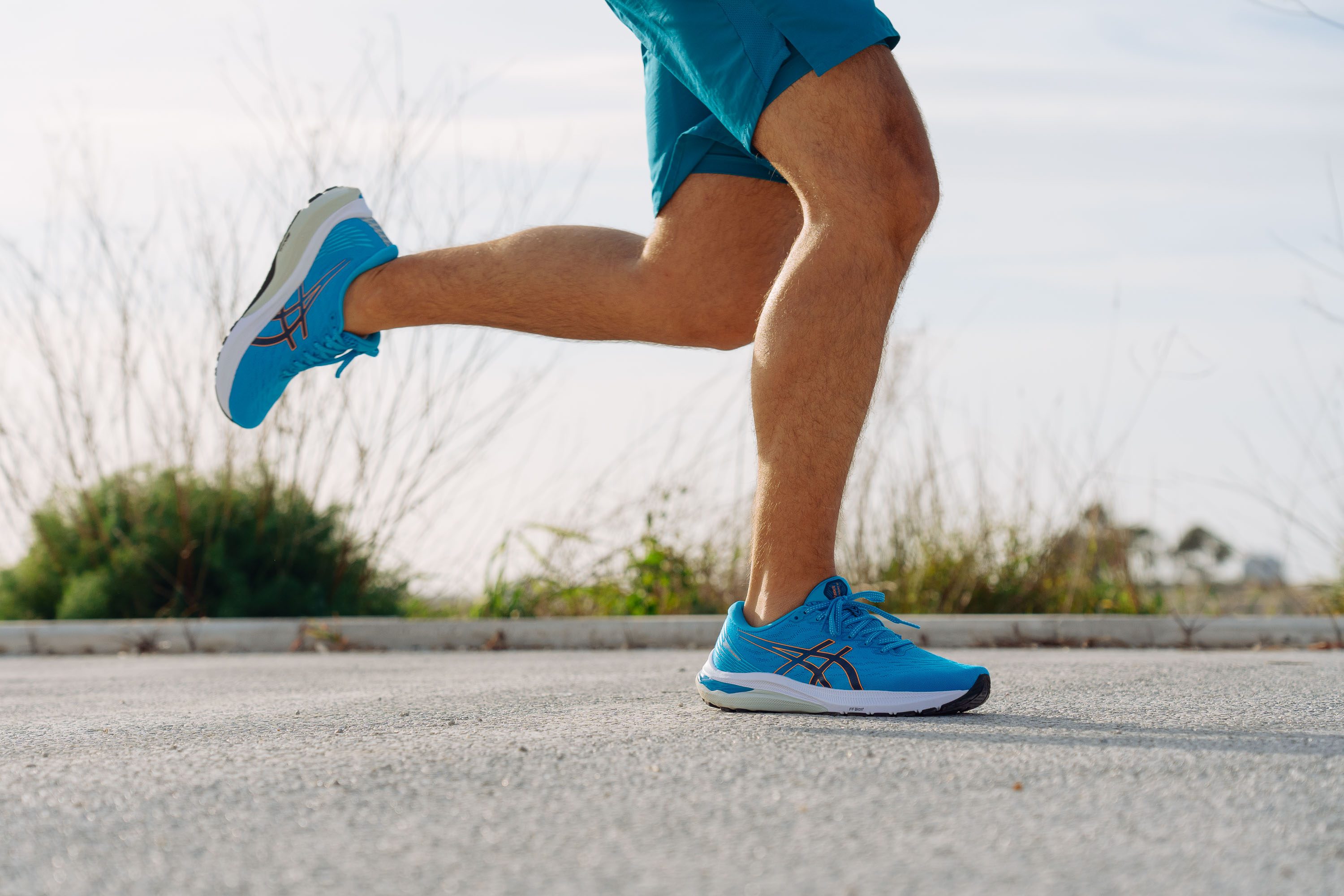
The ASICS GT 2000 11 is a more supportive Cumulus
Comparing this shoe with the Cumulus 24, we discovered that the GT 2000 11 has a very similar toe-off and forefoot experience. Essentially, we felt as though the GT is the stability version of the Cumulus.
However, there are some notable differences that help to make the GT 2000 a more supportive option. Based on our durometer measurements, the cushioning of the GT is 35% firmer than that of the Cumulus.
When it comes to sole width, the GT 2000 also proves to have a wider platform. It is 115.0 mm wide in the forefoot and 92.8 mm in the heel, whereas the Cumulus is 108.9 mm and 86.1 mm wide respectively.
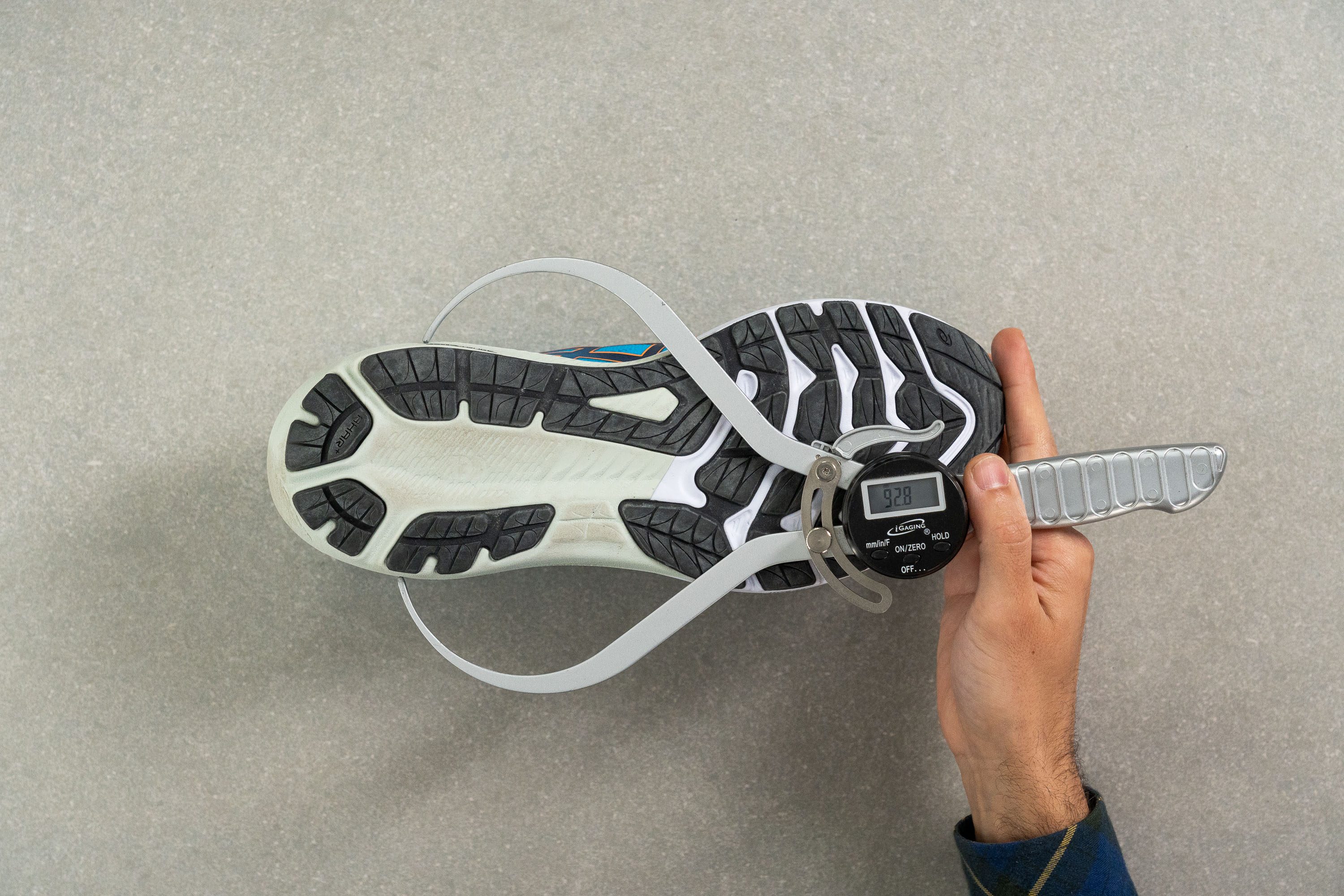
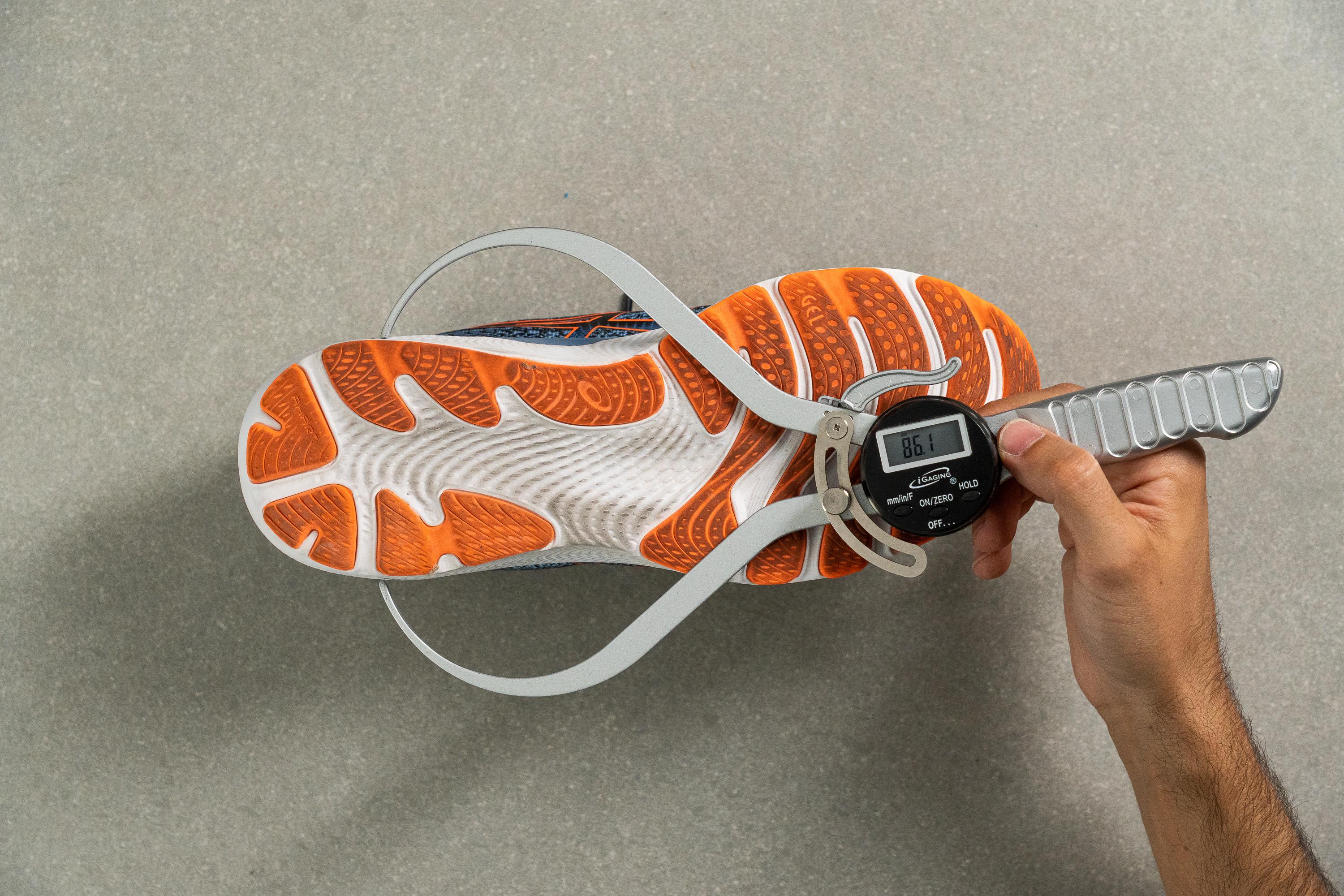
Reflective heel stripe
Those running in low-light conditions appreciate this touch of reflectivity in the back of the shoe.

